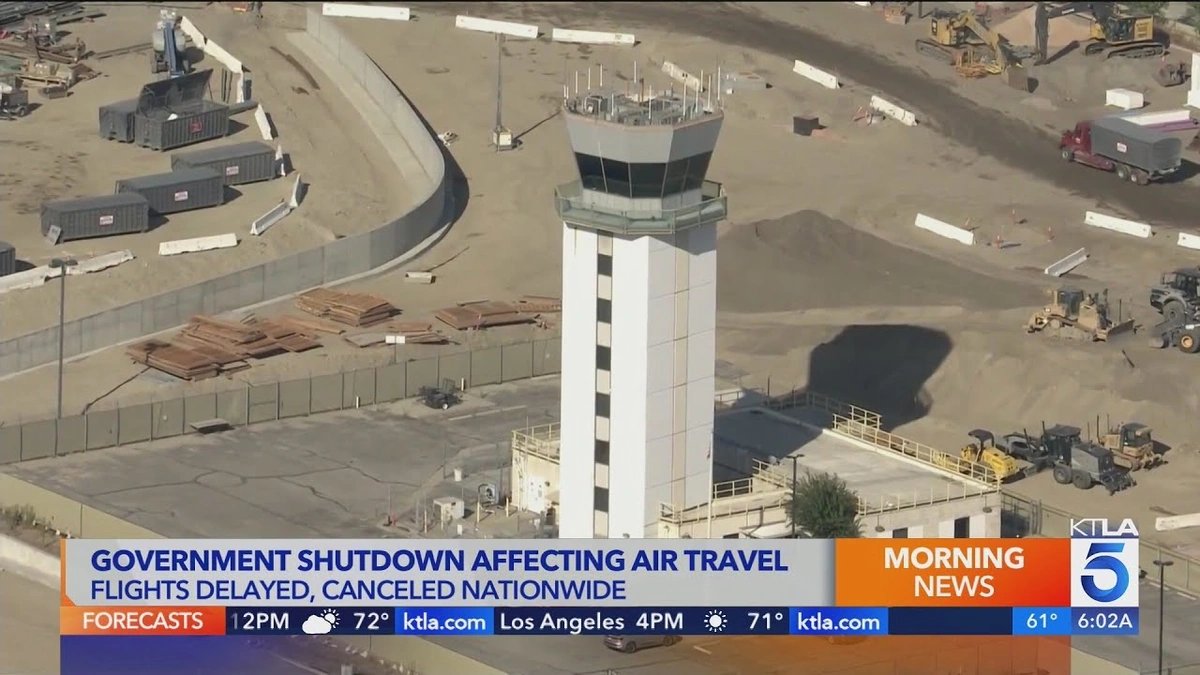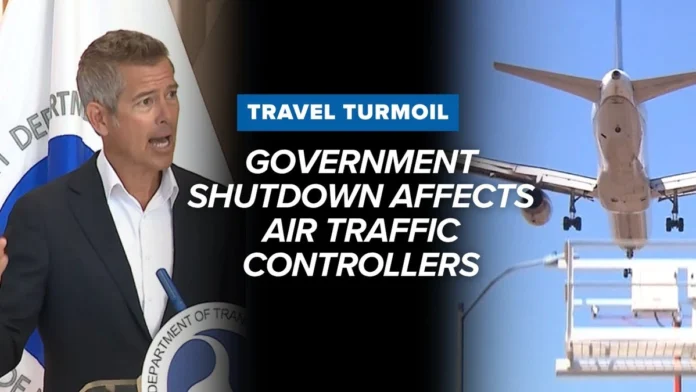Alright, folks, let’s be real. A government shutdown? It sounds boring, like something happening in a dusty office miles away. But here’s the thing – it can throw a wrench into your travel plans faster than you can say “delayed flight.” We’re not just talking minor inconveniences here; a government shutdown affecting air travel can ripple through the entire system. So, grab your chai, and let’s dive into why this matters and, more importantly, how you can navigate it.
Why a Shutdown = Travel Chaos?

Okay, let’s get one thing straight: it’s not like air traffic controllers are suddenly going on strike. The issue is more subtle, yet far-reaching. Think of it like this: multiple government agencies play crucial roles in keeping air travel safe and efficient. When funding dries up, many employees are furloughed – meaning they’re temporarily out of a job. This includes folks at the FAA (Federal Aviation Administration), TSA (Transportation Security Administration), and even customs and border protection. According to FAA website , their roles can be significantly impacted.
But, and this is a big but, it’s not just about fewer people on the job. It’s about the domino effect. Fewer TSA agents can lead to longer security lines – we’re talking potentially missing your flight kind of delays. Reduced FAA staff can slow down air traffic control processes, leading to flight delays and cancellations. And the ripple effect doesn’t stop there . The maintenance and inspection of aircraft and airport facilities might also be affected, potentially raising safety concerns (though, to be clear, safety is always the top priority, even during a shutdown).
The “How To” Guide | Shutdown Survival for Travelers
So, what can you, the intrepid Indian traveler, do to minimize the impact on your journey? Here’s the “how to” guide, straight from someone who’s seen a fair share of travel mishaps.
- Stay Informed: This isn’t just about reading headlines. Check the official websites of your airline, the FAA, and TSA for real-time updates. Follow them on social media, too. Information is your best weapon.
- Arrive Early. Seriously Early: Under normal circumstances, you might cut it close. But during a shutdown? Add at least an extra hour, maybe even two, to your airport arrival time. Those security lines could be brutal.
- Pack Smart: Know the TSA rules inside and out. The less time you spend fumbling with your luggage at security, the better. Double-check the restrictions on liquids and electronics.
- Download Your Airline’s App: Most airlines have apps that provide flight updates, gate changes, and even rebooking options. This can be a lifesaver if your flight is delayed or canceled.
- Consider Travel Insurance: If you don’t already have it, now might be the time. Make sure it covers trip delays and cancellations due to unforeseen circumstances like, you guessed it, a government shutdown affecting air travel.
Real Stories, Real Impact
Let me tell you about a friend of mine, Priya. She was flying from Delhi to Mumbai for a crucial business meeting during a partial government shutdown in the US (yes, it can indirectly impact international flights too, due to global air traffic management). Her connecting flight in New York was delayed by four hours because of staffing shortages at air traffic control. She missed her meeting and almost lost a major deal. The emotional toll was huge – the stress, the anxiety, the feeling of helplessness. Stories like Priya’s aren’t uncommon. A government shutdown affecting air travel has real-world consequences for real people.
Beyond the Headlines | The Economic Angle
What fascinates me is that the impact goes way beyond individual travelers. A sustained disruption to air travel can have a significant impact on the economy. Think about it: delayed shipments of goods, canceled business trips, and a decline in tourism all add up. Industries that rely on air travel, like hospitality and logistics, can take a major hit. It’s not just about the inconvenience; it’s about livelihoods and economic stability.
Speaking of broader consequences, understand that a government shutdown often reveals deeper political divides. These funding battles often stem from disagreements over budget priorities and can signal a period of increased political instability. So it’s worth keeping an eye on news beyond just flight delays. Read more about political events in this article .
Staying Ahead of the Curve | What’s Next?
The million-dollar question: what can we expect in the future? Well, that depends on the political climate and the willingness of lawmakers to compromise. The one thing we know for sure is that flight delays can be more prevalent during political tensions. The best approach is to stay proactive, informed, and prepared. Keep an eye on government negotiations and budget deadlines. The more you know, the better you can plan and protect yourself from potential disruptions.
FAQ | Your Burning Questions Answered
Frequently Asked Questions
What happens if my flight is canceled due to the shutdown?
Contact your airline immediately. They are responsible for rebooking you on the next available flight, often without additional charges. Explore alternative routes or airlines if necessary. Travel insurance can also help cover expenses related to cancellations.
Will airport security be less strict during a shutdown?
Absolutely not. While there may be fewer TSA agents, security protocols remain the same. Don’t expect any leniency. In fact, be prepared for even more scrutiny due to the increased workload on remaining staff. It’s best to adhere to all guidelines strictly.
Are international flights affected by a US government shutdown?
Yes, potentially. While the direct impact is primarily on domestic flights, disruptions to US air traffic control and customs can indirectly affect international flights, especially those connecting through US airports. Expect possible delays.
What if I have a connecting flight?
Allow ample time between flights, even more than usual. A missed connection can snowball into a major travel headache during a shutdown. If possible, try to book flights with longer layovers.
Is there any way to avoid the delays altogether?
Unfortunately, there’s no guaranteed way to avoid delays completely. However, flying during off-peak hours (mid-week or early morning) might help. Also, consider flying into smaller airports, which may experience less congestion.
So, there you have it. A government shutdown affecting air travel isn’t just a headline; it’s a real-world challenge that requires awareness, preparation, and a healthy dose of patience. Safe travels, and may your flights be on time!

